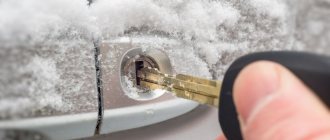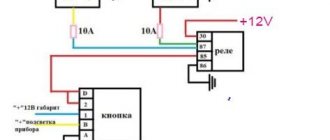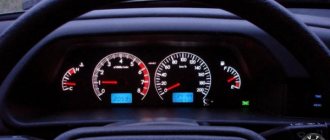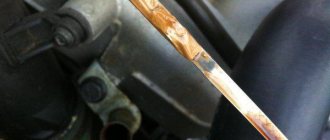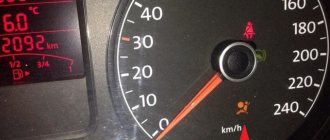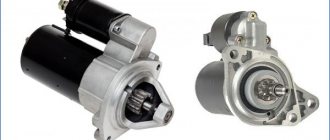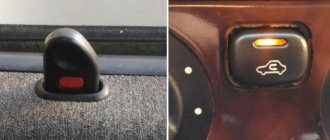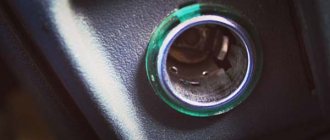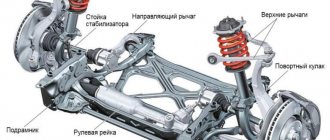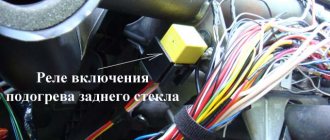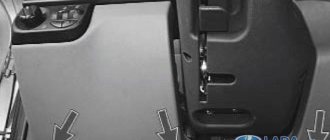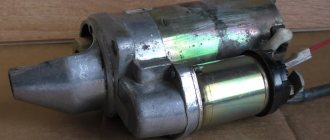What to do if the calipers are knocking? Proven Action List
Many car enthusiasts wonder what to do if the calipers are knocking and why this happens.
Moreover, even owners of new cars suffer from this problem. This problem is certainly not terrible, but it is necessary to fight it. Otherwise, over time you may end up with completely ineffective brakes. In the worst case, they will simply jam. It should be noted that at all dealers this problem is not covered by warranty. Because of this, it makes sense even in a new car to fix the problem yourself. Moreover, there should not be any special problems with this. All methods and techniques are quite simple and effective.
The calipers are rattling, what should I do? Tips and tricks
Among the mass of problematic issues and topics discussed regarding cars, several of the most common and banal ones can be identified:
3) The calipers rattle
Everywhere, car malfunctions occur at the most inopportune moment, when you are on the road and on your way to a business meeting or date. As luck would have it, you don’t have the slightest opportunity to use the technical server.
So, what can happen to your car?
1) You may experience engine failure.
2) When you try to start the car, the engine cannot cope and does not rotate.
3) The battery is a delicate thing, and if the contacts are loosened, or possibly oxidized, then it’s a real disaster. The pedal is not fully pressed, contact with the control circuit is lost, the starter is not working, the gear teeth are broken, etc. The engine may not rotate or start.
4) The gas tank is not fully filled. The carburetor is not working, the fuel pump is broken, the pressure regulator is disabled. Quiet horror, if you imagine it all!
5) Problems with starting a cold engine. There are some problems or defects with the distributor cap.
6) Problems with starting a hot engine. The filter may be full or even clogged. Fuel is not going to the right place.
7) The starter crackles and does not turn.
 The engine starts and then stops.
The engine starts and then stops.
9) Poor contact of electrical connections.
Possible reasons
To repair a fault, it must be found. Therefore, first we will look at the main causes of caliper knocking:
- Worn pads. Actually, it is not the caliper that is knocking, but the pads;
- The guides were taken out, as a result the caliper moves along them, while it knocks;
- The bolts holding the caliper have come loose.
Each of these problems has its own methods and repair methods. Let's look at them in more detail.
Often, a metallic grinding sound is added to the knocking. This happens when the lining on the block has been removed completely. The knocking does not come from the caliper itself, but from the pads. The repair consists of replacing the pads. If you ignore the problem, your braking performance will be significantly reduced. But that's not all.
Having worn down to iron, the pads actively wear down the brake disc. A hundred kilometers in this mode and it will simply “cut off”. And you will have to buy a new disk at the store. It can also easily push out the working cylinders. This is fraught with jamming. The most common problem in this case is brake fluid leakage.
Topic: Calipers.
They don’t want to bother. Before the Astra there was a Shevik Lacetti, it had the same song. the rack is knocking, but everything is fine within the tolerance, there is something wrong there, but everything is fine with you. calipers - ride everything within the tolerance.. just poop
Astra J 1.6. White, Cosmo + USB. If I could help in any way please click thanks
ahh, well, it’s when you have a lot of free time or you don’t have anything to do with something to do with your brain, then of course “that’s what you should do”
The calipers started knocking at 7000 km. I will put 3M tape on the pads. I want to lubricate the guides with this grease: Mobil Mobilith SHC 100. This is a synthetic lithium grease.
I stole it from work.
Good day everyone, in principle, like everyone else, I encountered a mind-blowing sound emanating from the rear calipers, so after reading everything I was faced with the choice of gluing - a spring - or tuning. But besides the brakes, my right foglight fell off, I took Tri-Am glue and removed the bumper and glued it on, but I don’t know how long this glue will last, but for now it’s holding, but these are all minor things: after the rain I found some water on the mat, putting my hand under the tarpedo in the area the location of the driver's left foot was very wet there, and the next heavier rain, you didn't have to stick your hand in, just dug on the mat and under the torpedoes, when we arrived, it turned out that the left corner of the windshield was not glued down at all if you were sitting in the car, as a result it was flooded the alarm and it died, I wrote a claim to the salon for damages since I didn’t install the alarm from them, they were immediately rolled back / I didn’t install it from them
10t.r. I saved money, I have it with auto start, GSM / but I broke them down hard by the office that installed the alarm for me completely legally and I have all the documents and a license, so I’m waiting for a response from the salon, they promised to respond in writing within 10 days, 5 have passed. I’m bothering GM, I write a complaint every two days to the address: https://www.opel.ru/tools/kontakt-opel.html only in the column “are you interested in:” I indicate “complaint” and state, within the acceptable vocabulary, everything that I think about them and every time I remind you about the rear brakes, for those who are interested in driving an Opel at the direct address, the link is a little higher. Good luck to everyone, and also no nails or wands.
Mobilith SHC 100 is an anti-wear and extreme pressure lubricant recommended primarily for high-speed applications such as electric motors.
where reduced friction, wear and increased service life are required. It is an NLGI 2 grease based on synthetic oil of viscosity class ISO 100. Its operating temperature range is from -40 C to 150 C
Very thin. And the upper temperature is at its limit. I wouldn't risk it.
Astra Hatchback 1.3 CDTI
, Easytronic, 2012
So, I propose to write an official letter of complaint about the rattling calipers, as well as about GM’s inaction on this matter, because this should not happen on a fundamentally expensive car with very strong competitors. It will be necessary to collect a lot of signatures from the owners. Where is Opel's head office located?
TipTronic
Now my neighbors are a lawyer, she left her husband for her mother, and we were talking to her about that. She said that the word guarantee is that you have the right to file a lawsuit in accordance with the contract and everything else, otherwise they can simply send you, except in the case that turns movable property into real estate. You need to follow all the procedures, file a claim, go to independent experts and maybe then they will take you into account, but acoustic comfort is not specified in the contract. In order for GM to come to grips with this, at least a thousand lawsuits are needed. In our country, the word guarantee is a scam in comparison, what the hell is a guarantee, when I arrived at the salon, read the contract and said, to change and add some clauses in the contract, they responded by saying that they would not sell anything, much less change . I have already figured out the brakes, I say again, during the crisis they saved money, this type of brake is cheap and the rear brake design is an engineering defect. In the front there is a better gasket + the decompression stroke is minimal and because of this the moving part is spring-loaded with pads and sticks to the gasket, the guides are large and the gap is normal. In the GTC, the rear brakes are also without springs, but glued, and the front ones are like insignia..
Adhesive is available, we order it for gluing calipers ( [email protected] )
, instructions-> Calipers.pdf
Online store EXIST -> FRAUDERS
There was an Astra J 1.4T 6MT, now an Opel Insignia Sedan 2.0T 6AT Cosmo +Premium!! white
Suitable for civilian calipers without any problems - synthetic, lithium thickener and operating temperature range from -40 to 150 C is just what the doctor ordered for caliper guides.
There is only one problem - it is not clear how this lubricant will affect the seals and rubber bands of the boot. If it is aggressive towards rubber, then its use threatens with big problems, including jamming.
In general, the problem with the calipers is still not resolved. When I bought a car manufactured at the end of 2011, I had already read about this and was aware of it, so I immediately asked the manager about this problem. To which I received a clear answer that GM had already solved this problem a long time ago, and it was typical for cars produced in 2010, but now everything has been fine for a long time. So what do I have now, 3 months after the purchase. But here’s the thing: at 7,000 km, I notice the knocking more and more clearly. I climb under the car into the inspection hole. Nag nah, all four calipers are dangling by hand. So it looks like the manager’s words during the purchase - it was an impudent rant or the incompetence of a young guy. I’ve never had this kind of crap happen on more than one car, even on a BMW 520 from 1988, I remember pulling the calipers with my hands, they didn’t move at all (the moving part with the piston). I also remember that on the former Astra N, when replacing the front pads independently, the moving part of the caliper was pushed apart by a wire spring bracket relative to the fixed bracket. On these calipers (Astra J) there is no such thing, neither on the rear nor on the front, why the hell - x.z. and there is not even a place to insert it. While I installed oka springs on all four calipers (I read here), it became quieter, but the outer pad still seems to fly a little in the grooves and there is a little noise, you have to kick the wheel harder to hear the rattling. It looks like there is only one solution for now - to install new calipers (it is advisable under warranty), immediately tighten these springs from the Oka so that the guides do not break due to the caliper being loose when driving on a bad road, and in general think about where and how to get a spring from the Astra N or something similar. It seems to me that we will completely solve this problem here much earlier than GM shakes up. Well, how it was possible to screw around with the calipers so much and not change anything in the design in two years is not at all clear - but these are brakes. Now you watch an advertisement for a three-door J and understand, but after a while its calipers will start knocking, and every time you tell everyone who doesn’t know about it. I’ll go to the maintenance and remove the collective farm and complain about the calipers and demand a replacement, and then we’ll see - I’ll have to do the collective farm again.
KostJ
In order to screw the wire spring onto the front and back, you need to drill and make grooves, which is possible, but be careful. If you need to calculate everything, buy one caliper accordingly and use it in front, but the spring won’t work at the back. In your case, everything is fine, but there are no gaskets between the block and the moving part, cut it out of poronite with a hole for the pins and glue it to the blocks with thermal glue. In this case, there will be no knocks at all and you will drive for a long time. But if you glue it with adhesive, then there is no need for gaskets, there will be no misalignment as with a spring, and then there will be wear on the guides.
Adhesive is available, we order it for gluing calipers ( [email protected] )
, instructions-> Calipers.pdf
Online store EXIST -> FRAUDERS
There was an Astra J 1.4T 6MT, now an Opel Insignia Sedan 2.0T 6AT Cosmo +Premium!! white
Guides
The caliper is constantly subject to quite heavy loads. Therefore, problems with them are not uncommon. And on some Chevrolet models, this is a generic disease that appears after 20,000-30,000 kilometers. There are several ways to fix this problem:
Why do the calipers rattle?
However, against the background of all these difficulties, the most difficult and painful problem remains with the caliper.
It can be encrypted and not make itself known; you simply will not notice that there is anything wrong with the machine. But be vigilant and careful, because a breakdown while driving on our roads is fraught with all sorts of consequences: from accidents and congestion to bodily injury and property damage. But now let’s take a closer look at the third problem, which haunts professional drivers even at night: “why do the calipers rattle?”
There is a fairly common problem with machines that will soon become incurable paranoia. We can easily include this in the list of such chronic ailments - their calipers begin to knock or creak. At the same time, it cannot immediately occur to the driver that these are calipers; everyone thinks about the chassis. However, this was not the case. When you arrive for inspection, they can tell you anything, but not the truth, or they can answer that everything is fine with you. You, in turn, begin diagnosing the shock absorbers and, if necessary, replacing them.
The calipers rattle for a reason, this annoying sound arises like this: a muffled sound, as if something is clicking or ringing. Most often they are heard when hitting various kinds of road potholes and irregularities. The sounds tend to disappear if you brake while driving or change the nature of turns.
In order to solve this problem, you need to drill several holes, or preferably four, in the calipers and attach the springs. This will help if the front calipers are rattling.
The presented kit is absolutely not expensive. There are two springs in one package, exactly for two calipers. This will work the same way if the rear caliper is rattling.
You will need to purchase drills with a suitable diameter relative to the thickness of the springs. Buy a few just in case, because they will get damaged during work. You will spend no more than half an hour on the entire procedure. You know, the brake caliper rattles for a reason, too.
The mount has come loose
This happens, but quite rarely. A common reason is traveling on poor quality roads. Vibration can cause bolts to become loose and unscrewed. Usually, this happens soon after a repair affecting the caliper. In this case, you or the master simply did not tighten the bolts. For prevention, always pull fasteners with a certain torque when assembling.
This will save you from problems. To eliminate this knocking noise, simply tighten the bolts. If one of them is lost, make sure it is not broken off and screw on a new one. The broken bolt will have to be drilled out.
Conclusion
. There are quite a large number of different mechanisms near the wheels. They periodically fail. Therefore, the question of what to do if the calipers are knocking is not uncommon. In many cases, this is a design feature that will be quite problematic to eliminate. But it is still quite possible.
Causes of failure
The caliper as an element of disc brakes is subjected to significant temperature loads, as well as exposure to external adverse factors: dirt, dust, moisture, chemicals. All this happens due to the fact that his device does not allow him to be protected from these negative phenomena. If there is significant overheating, as well as if the boot ruptures, the lubrication of the guides may disappear.
Improper maintenance of the guides, in which some craftsmen manage to stuff inappropriate lubricant into their boots: graphite or similar, leads to their swelling and souring, after which they jam or knock when suddenly activated.
How to tell if your calipers are knocking
Knocking calipers is a common problem for many cars, and in some car models it can be called a “birth disease.” For example, in a number of Chevrolet cars, the calipers begin to knock up to 30 thousand kilometers, and this malfunction is associated with the guides.
Determining that the calipers are knocking is quite simple. The tapping sound of the caliper is best heard when the car is moving at low speed, and especially when passing obstacles. That is, in order to hear it, it is recommended to listen to the car’s suspension when driving over a speed bump or when driving on a dirt road. When you press the brake the knocking noise disappears.
It is worth noting that in most cases, caliper knocking is not a problem that is covered by the vehicle manufacturer's warranty. Accordingly, the driver has to solve the problem for a fee at a service center or independently.
The caliper is knocking - what to do: how to eliminate the rattling noise with your own hands
Hi all! It is unlikely that anyone will argue with the fact that proper operation of the braking system is the key to the safety of every driver. Therefore, today we will continue this topic by talking about why the caliper is knocking, what to do in this situation and who is causing the noise.
Surely everyone knows that you should always monitor the degree of wear of the brake discs. We also talked to you about grooving brake drums, and also studied the nuances of grooving brake discs yourself. I don’t encourage you to do this yourself, but you must know the features and tasks of such procedures.
The caliper refers to the braking system of a vehicle. It comes in both front and rear. But in both cases, his treatment is carried out approximately according to the same scheme. And the reasons for the knocking are identical.
Plate
Many manufacturers install special anti-squeak plates from the factory. They follow the contours of the block and are up to one millimeter thick. Many people do not see the point in installing these elements. But they have an effect. If the spring is not able to properly press the pads, this pad partially compensates for this gap. If the calipers rattle, what should I do? It is necessary to inspect the brake mechanism and check for the presence of an anti-squeak plate.
Note! Even on a fully functional car, there should be a small gap between the working surface of the disc and the friction material of the pad. But it is so insignificant that the sound from the contact of parts is not reproduced
If the brake elements are fairly worn out, you should not add several plates at a time. This may interfere with the braking system, and the effect will be disappointing.
Is the caliper really knocking?
In fact, there are many elements in the car that can knock. These are the same engine valves and the notorious hydraulic compensators, the knocking of which we recently talked about. But the calipers also knock. Moreover, this phenomenon is quite common.
For some cars, such symptoms are quite common and their appearance is purely a matter of time.
The first step is to determine whether the calipers are actually knocking. Fortunately, there is no need to go to a car service center and spend money on expensive diagnostics. You can do it on your own. The knocking noise is most noticeable when the car is moving at low speed. It is worth intentionally driving through easy obstacles. The easiest option is to drive over a speed bump or drive onto the ground. And as soon as you press the brake, the knocking will disappear.
One of the disadvantages of the defect in question is the fact that it is not covered by warranty defects. Roughly speaking, if the car is under warranty, you will have to repair the calipers at your own expense.
We independently get rid of the knocking of Lada Vesta calipers
Many models are characterized by noise from brake calipers, and this applies not only to domestic cars, but also to foreign cars. As follows from the reviews of the owners, Lada Vesta also did not escape a similar fate. Owners of this car note that an unpleasant sound is heard while driving. This could be tapping, clanging, grinding, etc.
Visit to the dealer
First of all, you need to go to the Lada dealership. However, it is unlikely that the dealer will recognize the case as a warranty, since there is no regulation in this regard. Nevertheless, it is worth trying to solve the problem of Vesta calipers knocking through the dealership. In addition, some owners who have had their calipers replaced under warranty note that the new components installed in the car are no better than the old ones, and soon they also begin to rattle.
However, if you are refused, or you live far enough from the nearest salon and do not want to travel with a question that will most likely be refused, you have the opportunity to try to eliminate the source of the noise yourself.
Independent actions
Before you eliminate the knocking noise from Vesta calipers with your own hands, you need to make sure that it comes from them. To do this, you need to rock the mechanism from side to side. In this case, it is not necessary to remove the wheel, although if you have alloy wheels with many spokes, you will have to jack up the car and remove the wheel.
This situation is clearly shown in the video.
If your fears are confirmed, you can try to resolve the issue in the following ways.
Replacing brake pads
Replacing Vesta brake pads is not complicated and can be easily done independently. When purchasing a new set, it is recommended to choose those that are equipped with a rubberized pad on the reverse side.
Pads with a rubberized lining can eliminate knocking.
Guide lubrication
To do this, you need to unscrew the guide pins from the calipers and generously lubricate them with grease.
Lubrication also helps sometimes.
Replacing guides
If lubrication of the guide pins does not help, it is recommended to replace them.
New fingers instead of old ones.
Production of new guides
Recess groove
You can also order modifications to the factory guides at a turning workshop. It consists of making small indentations in the fingers at the edge. Subsequently, cuffs made of rubber with heat-resistant, as well as gasoline and oil-resistant characteristics must be placed in these grooves.
Guide pins with rubber inserts.
Plate
To eliminate noise, you can bend the plate (noise reduction) downwards. This option is demonstrated in the video
Caliper guide clamp
To do this, you need to arm yourself with a spring or a plastic clamp, and then tighten the guide, pressing it against the caliper. You can also use both options at the same time. To do this, you always need to remove the wheel.
Causes of knocking noises
Since you can independently determine the knocking noise from the caliper when testing the suspension on uneven surfaces, you can also safely tackle the problem with your own hands.
There is nothing scary or difficult about this. This happens on a variety of machines, including:
- Toyota Corolla;
- Gazelle;
- Lada Largus;
- Ford Focus;
- VAZ 2110;
- Mercedes Sprinter;
- Renault Logan;
- VAZ 2114;
- Lada Vesta;
- Chevrolet Aveo (every 30 thousand km);
- Hyundai Solaris, etc.
The reason usually lies in one of 3 reasons.
This includes poor fixation of the element, wear on the guides, as well as wear on the brake pads. In the latter case, the pads themselves will actually knock, although the symptoms manifest themselves identically. In any case, you will have to go there and take appropriate measures.
Now we will consider each reason separately.
The pads are worn out
The first thing that should be checked when such symptoms occur is the pads.
There are two simple diagnostic methods that you can do yourself.
- While driving. If you feel that the car brakes worse with the same pressure on the pedal, plus there is a creaking noise when braking, the pads are probably seriously worn out. This also includes such a symptom as beating in the pedal;
- Visual method. You will have to get to the pads by removing the wheel and examine their condition visually. Worn linings indicate a problem. Even if they are not completely erased, it is better to treat the node immediately.
On every car, the pads must be replaced after a certain period. Usually this is 10-15 thousand kilometers.
If the pad is worn out, the driver will observe a sound reminiscent of a knocking sound from the caliper. Under no circumstances should the pads be allowed to wear excessively, otherwise this could result in damage to the brake disc. Also, such pads can squeeze out and cause jamming of the car brake cylinder.
Having dealt with the wear of the pads in the calipers, we move on.
The culprits are the guides
There is a rather important component in the brake system, called caliper guides. When they wear out, it is necessary to take measures to replace the components.
In fact, there may be 2 problems here.
- The guides themselves are worn out. If these elements are worn out, then there is no need to repair or restore anything. You just need to purchase new guides and install them in place of the old ones. Based on the video instructions, this will be quite easy to do;
- The sockets are worn out. The guides have sockets that also wear out over time. Special repair rubber bands will help you here. These rubber bands are put on the pin, thereby the guides stop causing knocking.
What you shouldn’t do is use the so-called collective farm method. It consists of drilling additional holes in the brake system cylinder block, as well as in the caliper itself, after which the elements are tightened. For this, a spacer spring is used.
In some cases, knocking noise due to the guides can be eliminated with lubricant. It is applied in a thick layer, after first removing it from the nest.
Sometimes lubricant helps to get rid of extraneous noise for a long period. For some, the sound appears again after 200-500 kilometers, for others it lasts several thousand kilometers.
Caliper mount
The rarest malfunction is considered to be a loose caliper mount. But since this also happens, this problem definitely needs to be addressed.
I'm not even talking about the mistakes of the craftsmen who installed the part and did not tighten it properly. The fastening may become loose for a fairly trivial but common reason. This is the low quality of roads. Constant vibrations lead to loose connections.
The problem is easily solved. You just need to tighten the bolts and that's it.
Finally, I suggest you consider another of our recent materials, in which we answered the question of why the clutch slips. I think this will be useful and interesting for many to know.
That's all I have. Thanks everyone for your attention.
Subscribe, leave comments, ask questions on the topic and don’t forget to invite your friends to join us!
(No ratings yet)
How to get rid of knocking calipers on front-wheel drive LADAs
Owners of cars of different brands encounter extraneous noise from brake calipers, and LADA is no exception. Most often, drivers of Grant/Kalina, Largus and Vesta encounter this problem. The malfunction is less common on Priora and XRAY. Let's consider what can be done in this case.
To make sure that extraneous noise while driving comes specifically from the brake mechanisms, you need to rock the caliper from side to side (you can do this without removing the wheel):
Front wheel brake diagram:
1 – wheel cylinder; 2 – fitting for bleeding the brake drive; 3 – sealing ring; 4 – piston; 5 – protective cap; 6 – retaining ring; 7 – caliper; 8 – pad guide; 9 – brake pads; 10 – protective cover; 11 – guide pin; 12 – guide pin fastening bolt; 13 – brake hose; 14 – bolt securing the cylinder to the caliper.
The sounds may resemble metallic knocking, rumble, clanging, strumming, etc. The first step is to contact your dealer with the problem. As far as we know, there are no AvtoVAZ regulations in this case. If the official representative refuses, you can try to get rid of the knocking of the calipers yourself using one of the suggested methods:
1. Fill the guide pins with refractory grease (it’s called “Grease for calipers”).
2. Replace the caliper guide pins with new ones.
3. Make a small groove in the guide pins (using a lathe), onto which we put a ring made of oil-gasoline-resistant and heat-resistant rubber.
4. Turn out new guides (using a lathe), which will be slightly larger in diameter than the old ones.
5. Replace the brake pads. It is better to choose ones that have a special rubberized coating on their outer side (survey for Vesta, Largus, Granta/Kalina/Priora).
6. Tighten the brake pad guide using a plastic clamp or spring (can be done without removing the wheel).
7. Fold the top part of the noise reduction plate (number 4) down. This will get rid of the rattling of the calipers on Vesta:
This method is also shown in the video:
Information letter No. 19-18: When contacting owners of Lada Vesta cars, the effect of “noise from the brakes of the front wheels” emitted when driving on roads with broken surfaces is functional and cannot be eliminated under the warranty obligations of AvtoVAZ PJSC.
Have you encountered rattling noise from the calipers on your LADA? Did the official dealer help in this situation or did you have to fix it yourself? Let us remind you that knocking noises in the front part of the car can come from the suspension (for example, on Vesta from the anti-roll bar) or from the engine mount.
Car calipers are knocking: diagnostics and troubleshooting
A car's brake system without defects is the key to safe driving. The driver must be sure that when he presses the brake pedal, the car will start to stop with a certain intensity. Braking efficiency depends on a number of factors, but it cannot be achieved if there are defects in the brake system components.
Experienced drivers know the importance of timely replacement of pads and brake discs. But there is another problem that you may encounter: caliper knocking. If the calipers are knocking, it is necessary to identify the cause of the malfunction and eliminate it so that the brakes do not fail when the car is moving.
The principle of operation of the caliper
The brake caliper on the Gazelle is a unit that clamps the brake system pads to the discs when a person presses the pedal and the car begins to brake. In the entire braking system, only this element moves. This part is installed only on disc brakes. But the drum system functions completely differently.
The caliper is an extremely important component. It is recommended to consider it together with the pads, since they bear the main load in the entire braking system. 90% of front brake failures depend on the calipers.
Mounted caliper on brake disc
The brake caliper is a simple design that is not complicated. It is used on almost all passenger cars. The design will be similar everywhere, but the changes themselves in different models will be minimal. The operation is based on hydraulic pressure.
After a person presses the brake pedal, a certain piston in the main cylinder of the brake system begins to press down on the brake fluid. Then it goes through certain hoses and channels to the brake caliper.
Technical components of calipers for Gazelle
It contains a piston that moves forward under pressure. On one side there is one block, which presses the disc in one direction. The second pad is simply fixed on the caliper and does not move. As a result, both pads clamp the disc: first they rub against the part, and then they completely stop its movement.
This disk has a relationship with the wheel of the vehicle, so that the speed of the car gradually decreases. With such contact, the pads, if they are made poorly, begin to creak because they cannot withstand the high temperature (heating occurs due to friction).
This is what the front brake mechanism looks like on a Gazelle
The support can be either a simple design or large. In the second case, it includes brake pads that are quite long and wide. This is the shape used in modern vehicles.
How to tell if your calipers are knocking
Knocking calipers is a common problem for many cars, and in some car models it can be called a “birth disease.” For example, in a number of Chevrolet cars, the calipers begin to knock up to 30 thousand kilometers, and this malfunction is associated with the guides.
Determining that the calipers are knocking is quite simple. The tapping sound of the caliper is best heard when the car is moving at low speed, and especially when passing obstacles. That is, in order to hear it, it is recommended to listen to the car’s suspension when driving over a speed bump or when driving on a dirt road. When you press the brake the knocking noise disappears.
It is worth noting that in most cases, caliper knocking is not a problem that is covered by the vehicle manufacturer's warranty. Accordingly, the driver has to solve the problem for a fee at a service center or independently.
What to do if the calipers are knocking
When faced with the problem of caliper knocking, you must first carry out diagnostics and determine the cause of the malfunction.
Heavy pad wear
The first thing you need to check if you suspect a knocking caliper is the pads. They can be diagnosed in two ways:
- In move. If, while driving, the car began to brake worse, with the same pressure on the pedal, and characteristic squeaks appeared when braking, this indicates severe wear of the pads. This is also indicated by the pedal beating when braking;
- Visually. After examining the pads, you need to determine whether the lining on them has worn down to metal or not yet. If worn out or the situation is close to this, the pads need to be replaced.
It should be noted that the frequency of pad replacement varies for each vehicle. Most often it varies from 10 to 15 thousand kilometers.
If the pads are heavily worn, the driver may hear a sound similar to a caliper knock when driving. The danger is that the pads can wear down to the point of wear, which will lead to serious problems, for example, the brake disc will start to wear down. Worn pads can also lead to squeezing out and jamming of the brake cylinder.
Problems with guides
Caliper guides are an important element of the brake system. If they are worn out (or the sockets where they are installed are worn out), this problem should be corrected. You can do this in the following ways:
- Wear of guides. If it is the guides that are worn out, then this problem can be eliminated by directly replacing them;
- Wear of guide seats. In a situation where the guide socket is worn out, it is recommended to use special rubber bands. On sale you can find rubber bands that are put on the pins, which should eliminate the knocking of the guides.
Please note: Sometimes the situation with caliper knocking due to problems with the guides can be solved by lubricating them. It is necessary to purchase a special lubricant for the caliper and apply it thickly to the guide, having first pulled it out of its seat. Depending on the situation, such a solution can eliminate the problem for several hundred or thousand kilometers.
There is also a “collective farm” option for solving the problem of caliper knocking due to the guides. Additional holes are drilled in the caliper and brake cylinder block, and the parts are tightened using a spacer spring.
The caliper mount is unscrewed
The rarest of the problems under consideration, which can also lead to caliper knocking. The caliper mount may become unscrewed due to constant driving on poor quality roads or due to the inattention of a service center technician who did not secure the caliper properly during repairs or diagnostics of the brake system. Accordingly, in case of such a problem, it is enough to tighten the bolts securely to eliminate it.
Inspection of calipers
In 40 percent of cases, the front caliper rattles due to dry lubricant. Many car owners do not know that this part requires periodic maintenance. How often should you do it? Experts give the answer - lubrication is carried out every time the pads are replaced. The service life of the latter can range from 20 to 60 thousand kilometers, depending on the location (front or rear), as well as the driver’s driving style.
How to perform an audit? First you need to find a quality lubricant. It must be specialized - specifically for guides. Reviews do not recommend using grease for hubs, as well as copper and ceramic analogues. They dry out quickly and are not suitable for use in this location. A popular manufacturer of specialized lubricants for calipers is Liquid Moly. Typically this product is sold in vacuum bags. One is enough for two guides. The lubricant does not lose its properties at temperatures up to 200 degrees Celsius.
Note! If the piston boot is damaged, it must be replaced immediately. Otherwise, the rear calipers and the front ones will rattle constantly
Read also: Starline a93 how to enable autorun
The same work must be done on the adjacent brake mechanism. In order not to run to the store when you discover a damaged boot, it is recommended to purchase a repair kit in advance (in extreme cases, it will remain “in reserve”).
Reasons for caliper failure
The design of the caliper is quite simple: it is a cylinder with a piston, a movable bracket that moves on guides, a bleeder fitting and protective boots. However, even in such a seemingly simple component of the brake system, problems often arise. Let's look at the reasons that lead to brake caliper failure:
- Tearing of the anthers is the first and most important cause of brake caliper failure. Despite the fact that the piston is made of relatively corrosion-resistant steel, when water gets in it gradually begins to rust. And due to the fact that the piston is fitted to the cylinder with a very small tolerance, even surface corrosion can cause serious impairment of its mobility. The caliper boots (both on the piston itself and on the guides) are most often damaged due to unqualified intervention in the system, for example, when replacing the pads by a non-specialist.
- Late replacement of brake fluid. All modern brake fluids are hygroscopic (except for silicone DOT-5), that is, they accumulate water in their volume. The presence of water leads to corrosion on metal surfaces and accelerated wear of seals. And in this case, visually, the entire caliper may be seriously damaged from the inside due to exposure to brake fluid enriched with water.
It is recommended to change the brake fluid at least once every three years, regardless of the vehicle's mileage. This is the average service life until a critical amount of water accumulates in its volume. In regions with a humid climate, it is better to replace more often: once every two years.
- Critical wear of discs and pads. The more the pads and discs wear, the further the caliper piston has to extend to create braking force. This is fraught with spontaneous tearing of the anthers, the appearance of a leak, and even jamming of the caliper.
We have listed the main reasons why a caliper may fail. The best way to avoid problems is to monitor the brake system: replace worn or damaged parts in a timely manner and periodically lubricate the guides. If you do not deprive this unit of attention, then it is quite capable of working until the end of the car’s service life without replacement or repair.
How and what to “treat” if the front calipers rattle?
Only the pads can rattle, and only if you did not install spring plates when replacing them, and for the caliper to rattle, it must be unscrewed.
If the rear caliper rattles, then this is also not without reason. There will definitely be a solution to the problem! Many suffer for a long time when the pads in the caliper rattle. It is very easy to check the knocking of the pads by hitting the car wheel with your hand, or better yet, with your fist; you get a very unpleasant loud, ringing sound. If lubrication of the guides no longer helps, then the problem should be taken seriously.
It is worth buying two new guides without boots at the end, and special springs that release the brake pads. In each block, drill two holes for the springs with a two-millimeter drill. After some time, everything will be fine, and you will not need to be nervous about every little thing.
If the old guides with rubber began to refuse to work, in a word - became very loose, then they need to be replaced with new ones. After lubricating the new caliper guides with copper grease, insert them into their original place! Check again, because right now everything should work perfectly. At the same time, change the stabilizer struts and bushings.
So, the basic instructions have been provided in the best possible way. And now the most important thing is not to panic and run to your car, testing it for all of the above problems. Just be careful and vigilant on the roads, keep a good eye on your iron horse. And if difficulties arise, then do not rush to get into the complex structure of the vehicle, but rather turn to specialists who, for sure, know better “how”, and most importantly, “how” to help you.
